|
This
page is to help provide information about the relatively rare,
yet made famous by "The Longest Day" subject of Military
Decoy Paratrooper Dummies (Paradummies).
|
American Test
Paradummies
|
These
were developed by the U.S. Navy and tested at Chesapeake Bay
in 1943. These never went beyond the testing phase due to
poor test performance. These little 18" tall "Oscars"
never made it out to war.
These paradummies contributed to the top secret paradummy
development effort which resulted in much better generations
of paradummies to follow, which were used in combat zones
in WWII.
Legend has it that actor Douglas Fairbanks Jr. had a hand
in the design and development of these paradummies. Fairbanks
joined the Navy shortly after Pearl Harbor and was assigned
to the Navy's Deception Unit. Fairbanks was asked to help
develop ways to fool the enemy with various deception tricks
- which the military hoped he could help with due to his
knowledge of Hollywood special effects.
|
 |
 |
|
 |
|
Side View
|
|
Back
View
|
|
| |
|
|
Plywood Syle
Footlocker #1
|
| This
footlocker seems to be a more reinforced version of the other
plywood footlocker shown on this page. Having the thinner
side handles, lifting it can be difficult, however when shipping,
there is less wasted space between footlockers. All corners
and edges have metal strapping riveted. Along with the metal
edges, the clasps to keep it closed the make the footlocker
a much sturdier box when shipping. |
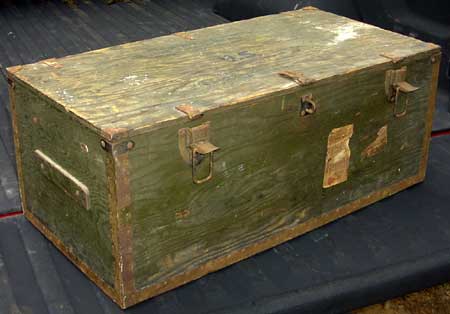 |
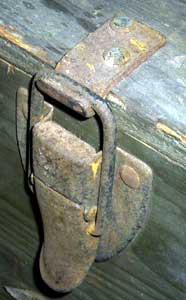 |
|
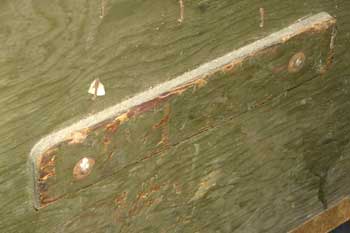 |
|
Clasp
|
|
Thin
Handle
|
|
| |
|
|
Plywood Syle
Footlocker #2
|
| This
example seems to be one a common footlocker of the US Army.
The corners are reinforced with three straps of metal on each
corner and thicker handles. This style is lacking a full metal
strip of metal on each of the sides compared to the other
plywood style footlocker. |
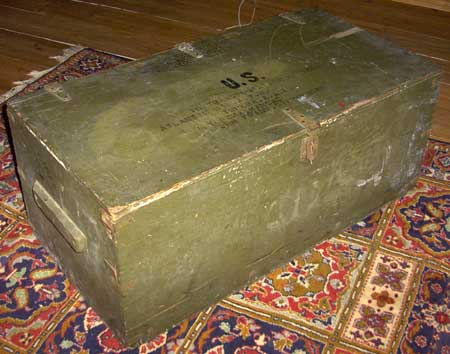 |
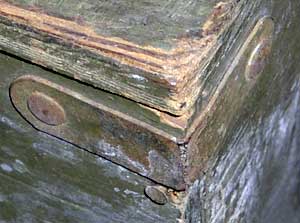 |
|
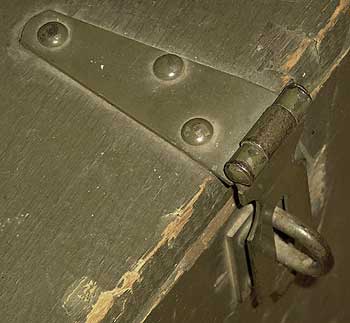 |
|
One Of The Straps Of Metal On A Corner
|
|
Lock
Clasp
|
|
| |
|
|
Footlocker
Tray
|
| This
shows how the footlocker tray looks inside. Each side has
two finger holes and has a wooden divider in the middle. Like
the plywood footlocker, it has metal bands riveted around
the corners. |
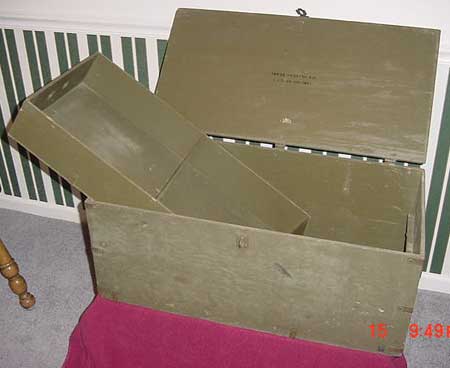 |
To
keep with the theme, WWII type reproduction footlockers will be
in displays and events. They can be purchased from a member of
our unit, Harry
Hardin who has done
an outstanding job researching and reproducing these items at
a low cost to the reenactor.
|